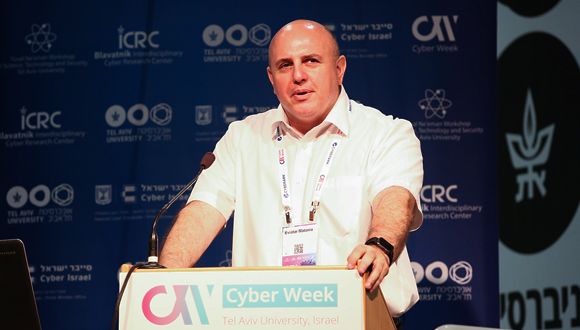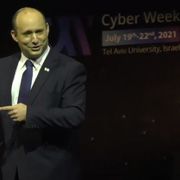Cybermania
How did Israel become a global cyber-power?
Did you know that 40% of all private cyber investments in the world are invested in Israel? Or that a third of the unicorn companies – private start-ups worth more than a billion dollars – are Israeli? How on earth did Israel become a cyber-power, amongst the first countries in the world to recognize the significance of the cyber revolution?
Israel – A Global Cyber Powerhouse in Absolute Numbers
"It's a unique phenomenon," says Prof. Eviatar Matania, founding head and former director general of Israel National Cyber Directorate, a member of Tel Aviv University’s Blavatnik Interdisciplinary Cyber Research Center and head of TAU’s International MA Program in Cyber-Politics and Government and the MA in Security Studies and an adjunct professor at Oxford University’s Blavatnik School of Government.
"Israel leads in various indices in the world of technology and security, but always in relative terms, i.e. per capita or by relative size. In cyber, on the other hand, Israel is a global powerhouse in absolute numbers: 40% of all private investments in the world in cyber reach Israel, and every third Unicorn company is Israeli. Today, cyber accounts for 15% of Israeli hi-tech exports, which is about half of the total exports of the State of Israel, and it will only grow."
In Cyber, We’re All Neighbors
Prof. Matania established and served as the head of the National Cyber bureau and later as the director general of the National Cyber Directorate in the Prime Minister's Office, reporting directly to the PM, from 2012 until 2018.
"The tipping point of Israel's journey to become a cyber-power was a visit by then Prime Minister Benjamin Netanyahu to [Israel Defense Forces’ Intelligence Corps] Unit 8200 in 2010," continues Prof. Matania. "Netanyahu was astonished by what he heard from the soldiers. He understood that the new world of cyber posed an extraordinary risk to Israel, as the country would be vulnerable to attacks from anywhere in the world.”
“It should be understood that regarding cyber, everyone is everyone's neighbor – Israel is a neighbor not only of Syria and Egypt but also of Russia and China. At the same time, Netanyahu was able to see the cyber opportunity for a small country like Israel, which specializes in both technology and security, to take the initiative."

The IDF is awarded the Cyber Shield Award for its contributions to Israel's cyber ecosystem at Tel Aviv University’s annual Cyber Week 2021. From left to right: Major General Lior Carmeli, Major General Tamir Hayman, Gili Drob-Hiesten Managing Director ICRC, TAU President Prof. Ariel Porat and Prof. Isaac Ben Israel
Building a National Cyber Ecosystem
Netanyahu had a three-vertices cyber system designed, at the top of which stands security and its two bases being academia and industry. Major General (Res.) Prof. Yitzhak Ben-Israel, today head of the Cyber Center at Tel Aviv University, was tasked with leading Israel's national cyber venture - the purpose of which was to formulate a comprehensive national cyber plan. This was the first of its kind in the world. Netanyahu set a tangible goal for the project: For Israel to be one of the five leading cyber powers in the world.
"The national cyber system that I headed was the first of its kind in the world," says Prof. Matania who, together with Amir Rapaport, founder of the Israel Defense magazine and "Cybertech" conferences, has written the book Cybermania: How Israel Became a Global Powerhouse in an Arena That Shapes the Future of Mankind on how Israel evolved into a cyber-power.
"Large budgets were invested in academia and industry and in building dedicated cyber defense capabilities. For example, six cyber research centers have been established at universities, including at Tel Aviv University, and the Chief Scientist has directed investments in startups in the general direction of cyber activities. Additionally, government projects invested in defense initiatives by former intelligence corps soldiers."
According to Prof. Matania, Israel's cyber capabilities – in the private sector, in the government and in the defense establishment – also leverage its political achievements. "When Israel signs a cyber-defense alliance with Cyprus and Greece, it does not necessarily need Cyprus or Greece to upgrade its cyber defense – but in return for defense we get payback in other areas. Israel has become synonymous with cyber."






